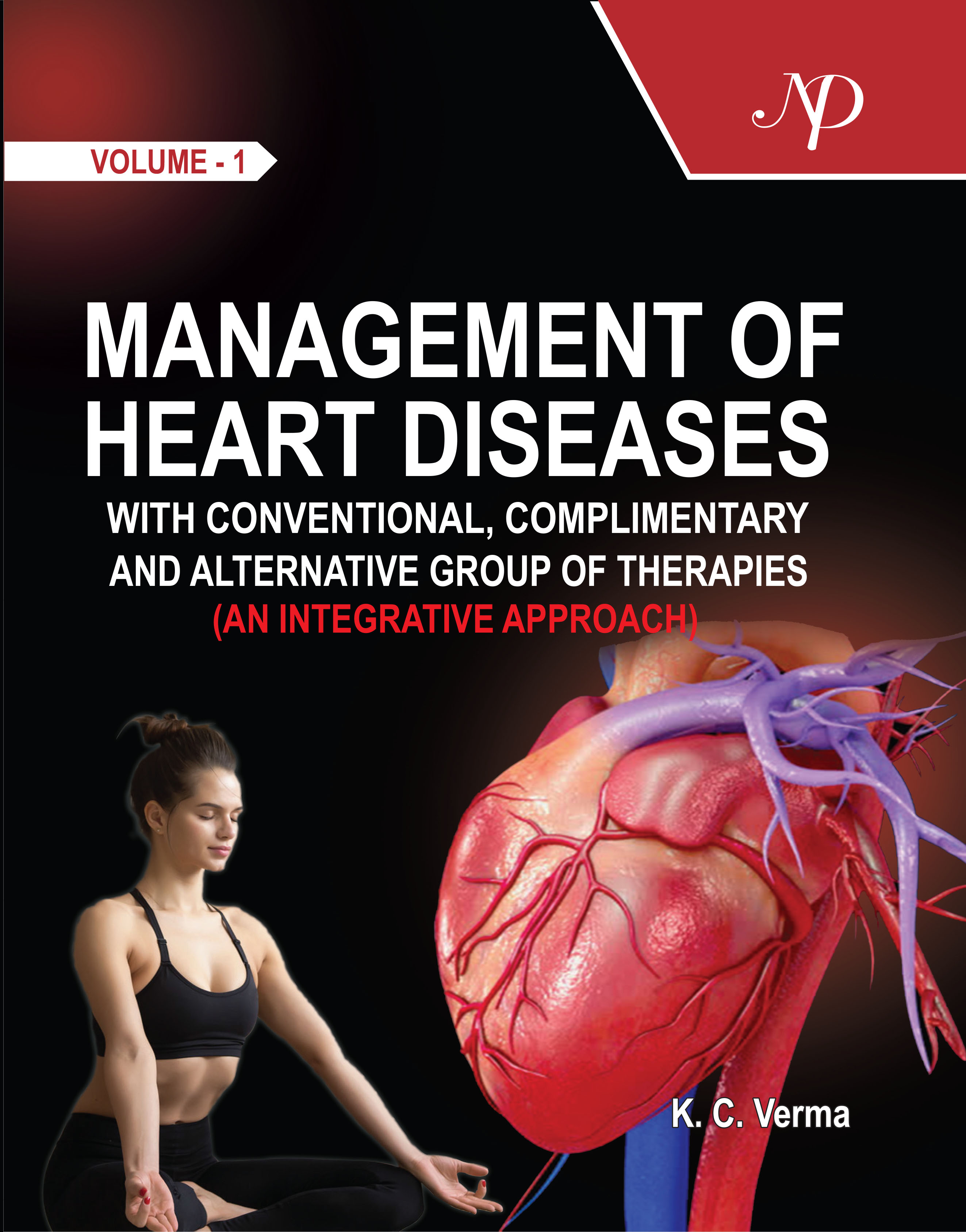Cart
- General Studies: Indian History and Culture (Success Mantra for UPSC/PCS Prelims - Exam)
- Dimensions of Digitalisation A Path Towards Economic Growth and Job Creation
- Contemporary Social Issues of India
- Fundamental Statistics of Agriculture
- PERSONALITY and Its Theories
- Path Ways to Experimental Chemistry
- Human Values: Psychological Perspective
- General Studies: Geography (Success Mantra for UPSC/PCS Prelims – Exam)
Management of Heart Diseases with Conventional, Complimentary and Alternative Group of Therapies (An Integrative Approach) (2 Vol. Set)
Sale!
Management of Heart Diseases with Conventional, Complimentary and Alternative Group of Therapies (An Integrative Approach) (2 Vol. Set)
ISBN NO:9789388879514 PAGES :463 PAPER TYPE: HardboundAuthor(s) / Editor(s):
K.C. Verma


Indian ancient methods of treatment ie AYUSH (Ayurveda, Unani, Siddha and Homopathy), almost disappeared from India in a phased manner or restictricted to only a few clergy people, sadhus and Hakeems and that too for the benefit of influential personalities like Raja, maharajas and top rich individuals of this country. English rule which lasted more than 100 years brought lots of changes not only in administration but also in workings of common man’s, life. During this peried, among many other alterations and modifications, they also shifted the discipline of Allopathy, also called modern medicine for the treatment of various illnesses prevailing in this country. Discipline of modern medicine became more popular than AYUSH due to its well planned research on animals and human volunteers, teaching in medical colleges and training of doctors and specialists. Medicines for different diseases were manufactured and classified after 5-10 years of research. Treatment prescribed to patients was later monitored for their curative effects and various side effects. Currently, physcians of modern medicine, practicing more than 30 years, did find that modern medicines and its techniques alone are not free from life threatening complications. With renewed thinking over the past one decade or so, AYUSH has become a well planned discipline and almost introduced in each state of united India. This discipline too like allopathy hac been supported with research, teachings in colleges and inventing newer medicines and techniques and therefore, is being accepted as an alternative system to allopathy with greater confidence. Indian ancient methods of treatment ie AYUSH (Ayurveda, Unani, Siddha and Homopathy), almost disappeared from India in a phased manner or restictricted to only a few clergy people, sadhus and Hakeems and that too for the benefit of influential personalities like Raja, maharajas and top rich individuals of this country. English rule which lasted more than 100 years brought lots of changes not only in administration but also in workings of common man’s, life. During this peried, among many other alterations and modifications, they also shifted the discipline of Allopathy, also called modern medicine for the treatment of various illnesses prevailing in this country. Discipline of modern medicine became more popular than AYUSH due to its well planned research on animals and human volunteers, teaching in medical colleges and training of doctors and specialists. Medicines for different diseases were manufactured and classified after 5-10 years of research. Treatment prescribed to patients was later monitored for their curative effects and various side effects. Currently, physcians of modern medicine, practicing more than 30 years, did find that modern medicines and its techniques alone are not free from life threatening complications. With renewed thinking over the past one decade or so, AYUSH has become a well planned discipline and almost introduced in each state of united India. This discipline too like allopathy hac been supported with research, teachings in colleges and inventing newer medicines and techniques and therefore, is being accepted as an alternative system to allopathy with greater confidence.